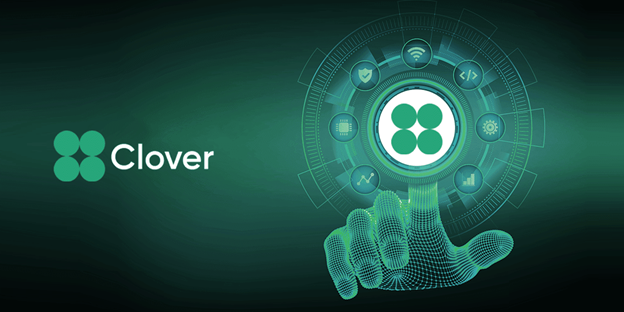If you are curious about Clover Finance, you are not alone! Now listed on Coinbase, Clover Finance is no longer just a new player in the space, it’s a leading name in the DeFi space. In fact, Clover Finance is leading the interoperability phase for decentralized finance, bringing blockchain together to grow not only the Clover ecosystem, but increase the user-friendliness of DeFi and crypto as a whole.
Here is a breakdown of how this revolutionary new platform actually works:
Clover Finance and its Consensus Mechanism:
First of all, let’s break down blockchain. A blockchain is a system of recording information in a manner that makes it extremely difficult to change, hack, or cheat the network. Essentially the blockchain is a complex, fancy and way cooler version of a database of transactions. Instead of being stored in one place, copies of this database are distributed across an entire network of computers over the internet. They are connected with each other, but are not run by a central control point. Instead, they are decentralized and they follow exact rules in working with each other to keep the blockchain secure, decentralized and protected from bad actors. They also need an agreed upon way to deal with a single data value or a single state of the network. This is known as a consensus mechanism.
Polkadot provides scaling solutions through parachains. Its blockchain framework, Substrate, is ideal for building bridges between different blockchains so they can operate together. Clover Finance is a blockchain built on top of Polkadot with the very purpose of building those bridges in the world of decentralized finance (DeFi).
In Clover, there is a special kind of consensus mechanism called Nominated Proof-of-Stake or NPoS.
How the Clover Finance Consensus Mechanism Works:
Clover is built on top of Polkadot, giving the ability to build bridges between different blockchains. Using the standard system of Polkadot, there are two key members of NPoS: Nominators and Validators.
Validators are the computer nodes acting to provide the infrastructure and are responsible for the maintenance of the network.
Nominators are token-holders who contribute economically, by, as you may have guessed, nominating validators of their choice. The nominators are essentially rewarded when the Validators do their job to secure the network, along with the Validators. And if it was found that those Validators misbehaved, the Nominators are also penalized along with them as well.
An In-Depth Look at Clover Finance:
Let us look closer at the inner working of Clover Finance and its ecosystem:
ERC-20: Clover Finance is built using the ERC-20 token standard, which is a coding standard used within the Ethereum blockchain. This essentially gives the rules and actions that an Ethereum smart contract or token must follow and steps to be able to execute it.
Cross-Chain: Solana and Polkadot are in the background of Clover finance. Clover is building bridges between blockchains, and is fully interoperable with and harnessing the power of Solana and Polkadot.
Interoperability: Clover Finance has the capability of bridging blockchains together and is working to connect with and integrate with numerous wallets. The Clover wallet already supports Ethereum, Polkadot, Kusama, Binance Smart Chain, Avalanche, Fantom, and Edgeware. The Clover Finance team is working to continue to expand this regularly.
Multiple Swaps. Clover Finance wallet gives the user the ability to swap cryptocurrencies in all wallets that are supported. Other wallets can only perform one swap.
Ease of Use. With the Chrome Wallet Extension, you can literally just log into Clover Wallet via your email address on Google. This also works on the Brave Browser in the same way. With the amount of blockchains supported, and the swap features above, this takes many steps out of a complicated process where one has to go to an exchange, buy a cryptocurrency, swap, transfer to their wallet, etc.
NFT dApps. Clover is built as the ideal ecosystem to connect with dApps. The wallet can connect to dApps and supports holding NFTs.
The “Always On” Function. In Basic or Standard Mode, you can have the “always on” function on. Essentially, there is a function app running in the background, preventing the app from being idle, but also saving time when you go in and want to use it.
Social Media
Connect with Clover Finance and learn more across social media and the web here:
Website | Telegram | Discord | Twitter | Github | WhitePaper | Cloverwallet
Credit: Source link






















